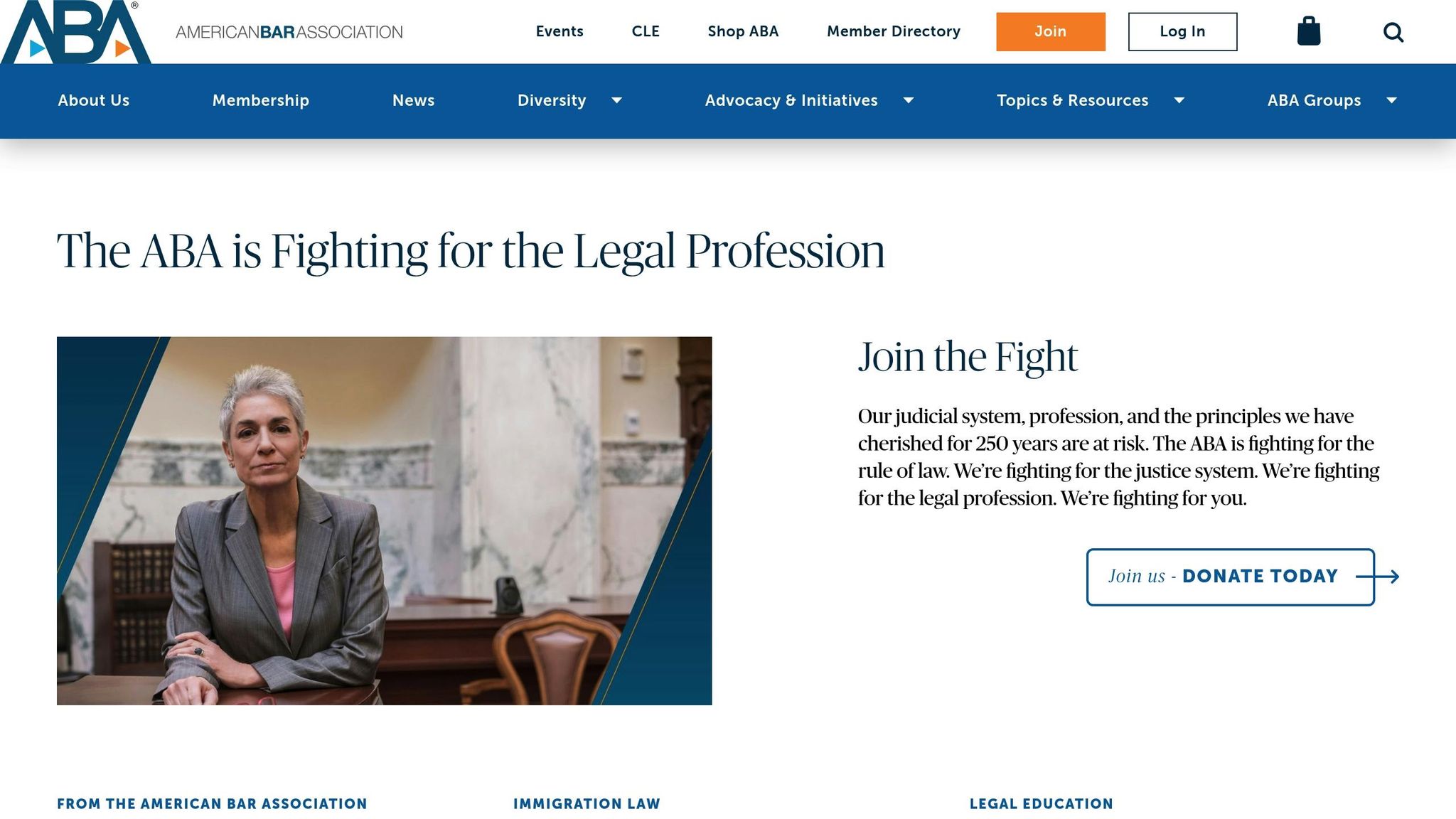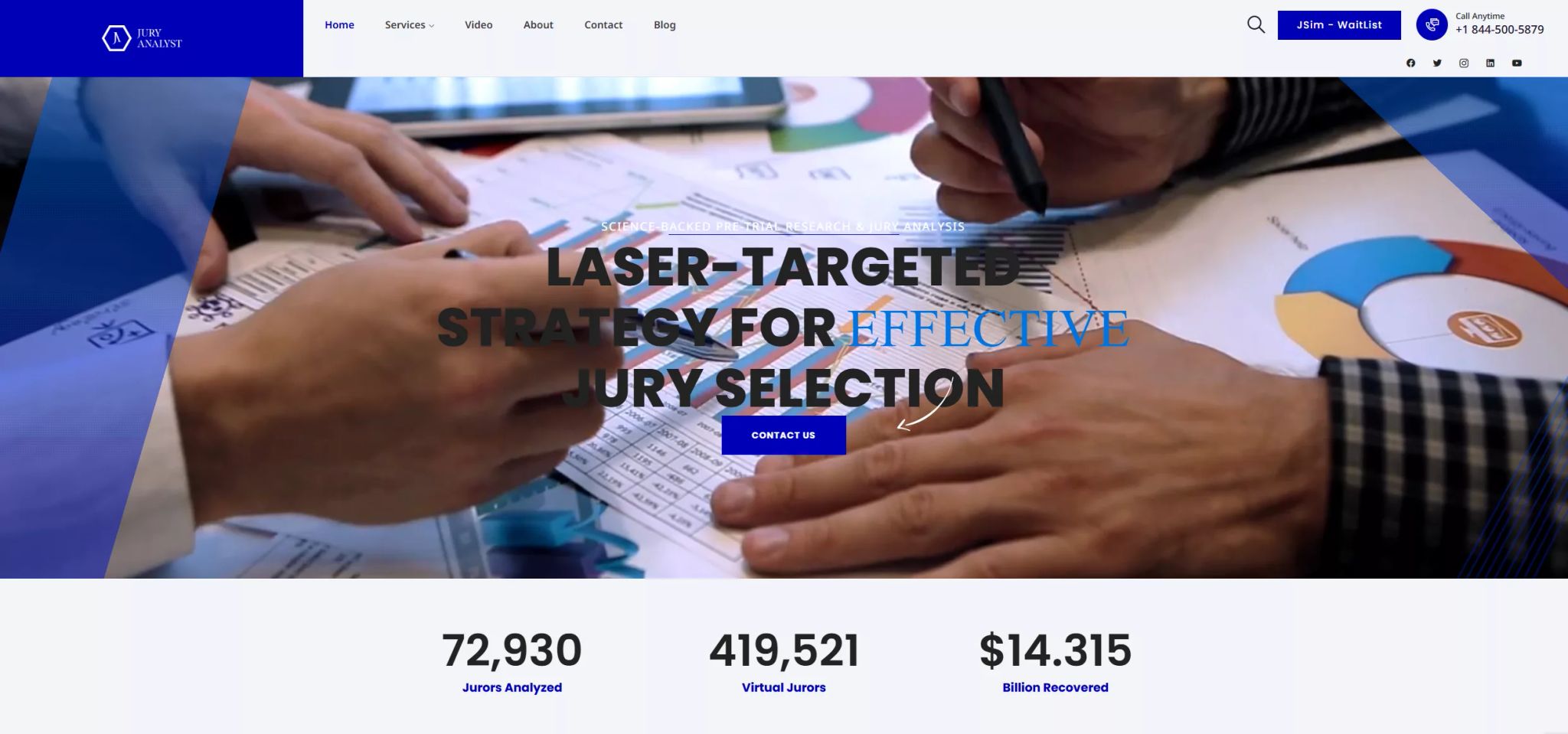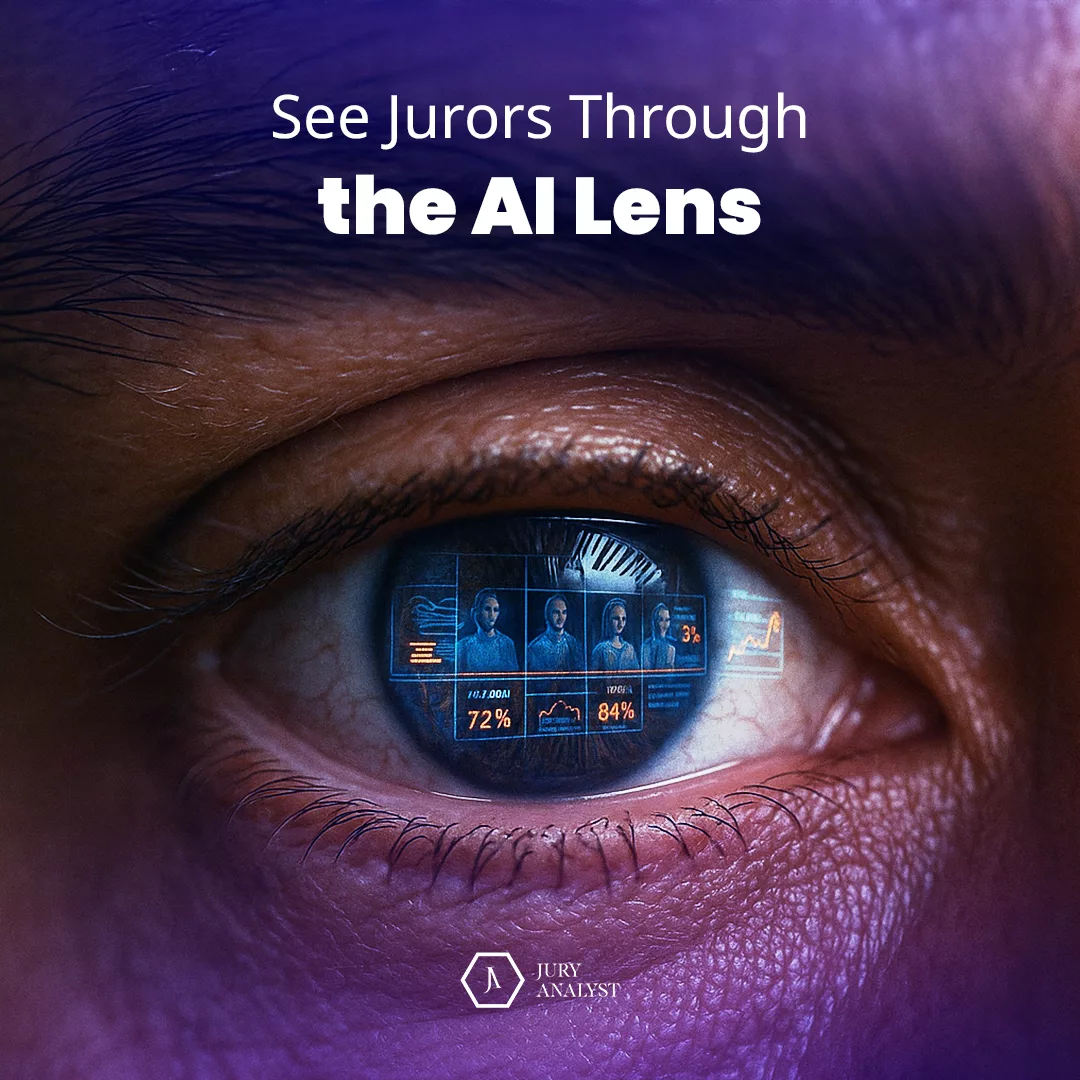AI is reshaping how legal professionals approach case strategy and preparation. These tools provide data-driven insights and predictive analytics that support smarter decisions at every stage of a case—from intake and discovery to trial and settlement. As the legal field evolves, AI tools are becoming indispensable for law firms that aim to stay competitive and build stronger cases based on real data.
AI tools streamline tasks, reduce human error, and provide actionable insights. Whether it’s analyzing large volumes of case data, predicting juror behavior, or forecasting settlement outcomes, AI is transforming the legal process.
The Power of AI in Legal Strategy
AI tools are transforming the way legal teams approach case strategy and trial preparation. One of the most powerful applications is in refining jury selection and voir dire—critical components of case preparation. By simulating potential juror reactions and analyzing group dynamics, AI provides lawyers with valuable insights that traditional methods cannot.
These AI-driven simulations help legal professionals refine their questioning techniques and anticipate how different jurors might respond to various aspects of the case. The ability to model both individual and group dynamics adds a practical layer of insight that empowers attorneys to adjust their strategies before trial, resulting in more confident and informed decisions.
By integrating AI into their preparation, attorneys are no longer limited to intuition and historical experience alone. AI tools help them approach voir dire with a deeper understanding of juror psychology, predicting biases and reactions that might otherwise go unnoticed. This allows trial teams to focus on the right jurors, ask the right questions, and ultimately develop strategies that resonate with the jury.
How AI Helps Refine Voir Dire Strategies
This short demonstration illustrates how simulated voir dire environments can help legal teams refine question phrasing and anticipate juror reactions. By modeling both individual and group dynamics, the platform adds a practical layer of insight to trial preparation.
Understanding Legal AI
Legal AI tools are designed to enhance traditional legal processes through machine learning, natural language processing, and advanced data analytics. These tools can assist throughout the entire case lifecycle—from intake and discovery to trial and settlement—by identifying key case elements, analyzing evidence, and refining strategies to improve outcomes.
Key features of Legal AI tools include:
- Predictive Analytics: Forecasts case outcomes based on historical trends and data from similar cases.
- Juror Profiling: Builds data-driven insights into juror demographics, behaviors, and biases to inform jury selection.
- Bias Detection: Identifies both explicit and implicit biases that could influence jury selection or trial outcomes, enabling more effective voir dire.
- Resource Allocation: Helps legal teams prioritize and focus on the most impactful aspects of the case, improving overall efficiency and resource management.
These AI-driven tools enable legal professionals to make smarter, data-backed decisions, automate time-consuming tasks, and improve overall case outcomes. They transform how lawyers approach case strategy, jury selection, trial preparation, and even settlement decisions, allowing them to compete more effectively in the modern legal landscape.
AI & Voir Dire: A Modern Approach to Jury Selection
The role of AI in jury selection, case evaluation, and voir dire preparation continues to expand. One of the most strategic applications of AI lies in identifying juror bias, an essential component of voir dire.
AI helps uncover both explicit and implicit biases by analyzing behavioral indicators, social media patterns, and responses to juror questionnaires. These tools enable legal teams to develop more effective voir dire questions—ones that reveal latent predispositions that could impact case outcomes. Attorneys can now approach voir dire with a deeper psychological lens, going beyond traditional questioning methods.
For practical guidance, the article 7 Data-Driven Strategies for Effective Voir Dire Questions outlines how to use machine intelligence, predictive analytics, and behavioral science to design high-impact voir dire strategies. It’s a vital resource for teams integrating legal technology into their jury selection process.
Why AI Tools Are Essential Across the Entire Case Lifecycle
AI tools are essential for optimizing case preparation. These tools provide data-backed predictions, improve resource allocation, and enhance case strategies. By offering deeper insights into every phase of the case lifecycle, AI helps legal professionals make smarter, more informed decisions.
For smaller firms, AI tools offer the same data-driven insights and technology that were previously only accessible to larger firms, leveling the playing field. With the help of predictive analytics and machine learning, even smaller firms can now compete more effectively and strategically manage complex cases.
The Difference with Jury Simulator
While many AI tools focus on just one phase of the case lifecycle, Jury Simulator offers a comprehensive, end-to-end solution. Built on 10 years of curated data from real jurors and real cases, Jury Simulator supports every stage of a plaintiff’s case, from discovery to trial.
Unlike other tools that specialize in jury selection or trial preparation, Jury Simulator integrates both with predictive analytics and juror profiling to offer a complete, seamless platform that drives case strategy. Whether you’re refining voir dire questions, simulating jury reactions, or evaluating potential settlement outcomes, Jury Simulator delivers insights that help guide decisions at each step of the legal process.
Ethical Considerations in AI Tools for Legal Practice
AI tools are transforming legal practices, but they also raise important ethical considerations. Legal professionals must ensure that AI algorithms are free from bias and comply with established legal standards.
The ABA’s Formal Opinion 517 (July 2025) emphasizes that attorneys must avoid AI-driven biases during jury selection. Specifically, AI tools should not perpetuate unlawful biases in jury selection or trial preparation. Legal professionals must carefully review AI-generated recommendations to ensure they comply with anti-discrimination rules, ensuring that peremptory challenges are not based on protected characteristics like race, sex, religion, or other factors.
By using AI responsibly, law firms can enhance their processes while maintaining fairness and integrity in the legal system. The ethical use of AI tools in jury selection and case strategy development ensures that legal professionals act in the best interests of justice.
ABA Guidelines on AI Use in Legal Practice

Best Practices for Integrating AI into Jury Selection Workflows
To align with these ethical mandates, legal professionals should adopt the following best practices when incorporating AI into jury selection:
- Conduct Thorough Due Diligence
Before using any AI tool, lawyers must understand how it operates. This includes examining its data processing methods, the factors it evaluates, and how it generates recommendations.
"Lawyers should conduct sufficient due diligence to acquire a general understanding of the methodology employed by the juror selection program", noted Nicole Black.
- Ensure Transparency and Oversight
AI recommendations should never be accepted at face value. Attorneys must critically evaluate suggestions, particularly those that seem unusual, to ensure compliance with ethical and legal standards. - Invest in Training and Expertise
Lawyers should enhance their understanding of AI technologies, either through personal education or by consulting experts. This ensures they can effectively use AI while recognizing its limitations. - Document Decision-Making Processes
Keeping detailed records of AI-influenced decisions can demonstrate adherence to ethical guidelines and provide a safeguard against potential challenges in the future. - Regularly Review and Assess AI Tools
AI systems should be periodically evaluated to ensure they continue to provide meaningful insights. Adjustments may be necessary to keep up with changes in ethical standards and legal requirements.
Jury Analyst: Features, Benefits, and Applications
 Jury Analyst is a platform that blends machine learning with over a decade of venue-specific data to revolutionize how attorneys handle jury selection and trial preparation. At its core, the platform uses specialized algorithms trained on real juror behavior, creating a tool that merges advanced technology with practical legal insights.
Jury Analyst is a platform that blends machine learning with over a decade of venue-specific data to revolutionize how attorneys handle jury selection and trial preparation. At its core, the platform uses specialized algorithms trained on real juror behavior, creating a tool that merges advanced technology with practical legal insights.
Jury Analyst revolutionizes how attorneys approach jury selection and trial preparation. It uses over a decade of venue-specific data and machine learning to create realistic juror profiles and conduct virtual focus groups that simulate large-scale jury dynamics.
Key Features of Jury Analyst:
- Jury Simulator: Creates juror profiles based on real-world data to simulate trial outcomes.
- Virtual Focus Groups: Simulates hundreds or even thousands of jurors, offering insights beyond traditional methods.
- Continuous Updates: Recommendations are updated regularly to reflect current behavioral trends.
- Juror Scoring: Combines demographic, social media activity, psychographics, and questionnaire responses into a single dashboard for quick insights.
- In-Trial Consulting: Provides strategies for voir dire questions and witness preparation.
"We tried the case, we got an $800,000 plaintiff’s verdict. And the reason for the verdict we discovered after our session with the jury after the verdict. These four things that Jury Analyst picked out were the most important things to the jury. And the fact that enable us to handle these things is what won the case for us. So, Jury Analyst was responsible in large part for a victory in a challenging case."
Addressing Legal Challenges:
Jury Analyst addresses issues in traditional jury selection, such as facilitator bias and groupthink, by offering data-driven and objective insights. This complements an attorney’s expertise, providing a fresh perspective on jury dynamics.
Pricing and Customization:
Jury Analyst offers three service tiers, each tailored to different needs and budgets:
- Basic Consulting: For smaller firms, offering consultation and voir dire preparation.
- Advanced Analytics: Adds AI-driven jury simulations and virtual focus groups.
- Premium Strategy: Comprehensive support for high-stakes cases, including in-trial consulting and witness preparation.
"Tools like Jury Analyst give trial lawyers a unique opportunity to run jury studies and gain critical insight before walking into court."
Each plan can be adjusted based on the complexity of the case, venue specifics, and research needs. This flexibility ensures firms can scale services to maximize their strategic advantages while staying aligned with their goals.
sbb-itb-7be87d6
Future Trends in Legal AI for Jury Selection
The legal field is undergoing a transformation, with AI taking center stage in jury selection and trial preparation. As these technologies advance, they promise to reshape how legal professionals strategize and advocate in the courtroom. These developments pave the way for deeper analysis, ethical considerations, and broader access to AI-driven insights.
Emerging AI Tools in Legal Analytics
New machine-intelligence tools are enhancing the way legal teams analyze jurors and approach trial consulting. Future systems are expected to use large-scale data analysis and simulation models to offer more nuanced perspectives on juror behavior. These tools aim to go beyond simple demographic profiling, incorporating a wider array of data to help attorneys craft more strategic trial approaches.
Shifting Ethical and Regulatory Landscape
The adoption of AI in the legal profession is being shaped by evolving ethical standards and regulatory developments. Professional organizations and state bar associations are actively working to establish guidelines for the responsible use of AI in legal settings. Some judicial districts are even experimenting with controlled applications of AI in jury selection. Meanwhile, legal education programs are beginning to include courses on legal technology and AI ethics, signaling a growing acceptance of these tools when used responsibly. These shifts highlight a cautious yet optimistic embrace of AI’s potential benefits.
Long-Term Effects on Legal Practices
In the long run, AI has the potential to level the playing field in trial consulting. Smaller law firms and solo practitioners will gain access to analytical tools that were once the domain of large firms. By automating labor-intensive tasks, AI allows lawyers to dedicate more time to strategy and client engagement. This can lead to better case evaluations and more effective settlement planning.
As legal education adapts and operational efficiencies improve, the industry may shift toward pricing models that focus on case outcomes rather than billable hours. The future of AI in jury selection points toward tools that are not only more advanced but also ethically grounded and accessible, all while preserving the critical role of human decision-making in the legal process.
Conclusion: How AI is Changing Legal Practices
The integration of AI in jury selection, trial preparation, and case strategy is transforming the legal landscape. Legal professionals are increasingly moving from intuition-based methods to data-driven strategies, enabling them to make smarter, more informed decisions.
AI tools offer invaluable insights into juror profiling, predictive analytics, and bias detection, significantly enhancing case preparation from intake to settlement. These tools help legal teams streamline their processes, reduce biases, and make better decisions, leveling the playing field, especially for smaller firms.
Jury Analyst stands out by offering a comprehensive solution for plaintiff-side cases. Built on real data from real jurors and real cases, Jury Analyst uses advanced machine learning and behavioral insights to support every phase of the case lifecycle. Whether you’re refining your jury selection, improving voir dire strategies, or forecasting case outcomes, Jury Analyst provides the insights you need to optimize case strategy at every stage.
As AI continues to evolve, it will play an even greater role in reshaping the future of legal practices. Those who embrace AI tools will not only improve their strategies and outcomes but also gain a significant competitive edge in an increasingly data-driven legal world.
FAQs
How does Jury Analyst ensure juror profiles are accurate and up-to-date?
Jury Analyst maintains accurate, venue-specific juror personas by integrating over a decade of historical and real-time human respondent data gathered from trial venues. The platform relies on advanced analytics and Machine Intelligence models, which are continually refined using fresh juror inputs to reflect evolving demographic and psychographic trends.
By combining trusted data sources with powerful algorithms, Jury Analyst provides legal professionals with detailed, up-to-date profiles. This ensures they have the tools needed to make well-informed decisions during jury selection and trial preparation.
How do legal professionals ensure AI tools used in jury selection are fair and comply with ethical standards?
To maintain ethical standards and uphold justice, legal professionals adhere to the rigorous guidelines set by the American Bar Association (ABA). These rules are designed to prevent discrimination and ensure fairness during jury selection. Part of this responsibility includes scrutinizing AI algorithms for any signs of bias, ensuring they remain transparent and operate within ethical boundaries.
By closely overseeing how AI tools process data and offer recommendations, attorneys can preserve the integrity of the jury selection process. This careful approach helps address potential challenges while reinforcing trust in the legal system.
How can AI tools help smaller law firms improve their jury selection process?
AI tools are transforming how smaller law firms approach jury selection, offering a faster and more budget-friendly alternative. These tools sift through vast amounts of data to uncover potential biases and predict juror behavior, empowering attorneys to make smarter decisions in less time.
Unlike traditional methods that often require painstaking manual data review, AI streamlines the entire analysis process. This efficiency not only levels the playing field for smaller firms but also boosts trial preparation by providing data-backed insights. The result? Better use of time, improved resource management, and a more balanced approach to jury selection.

